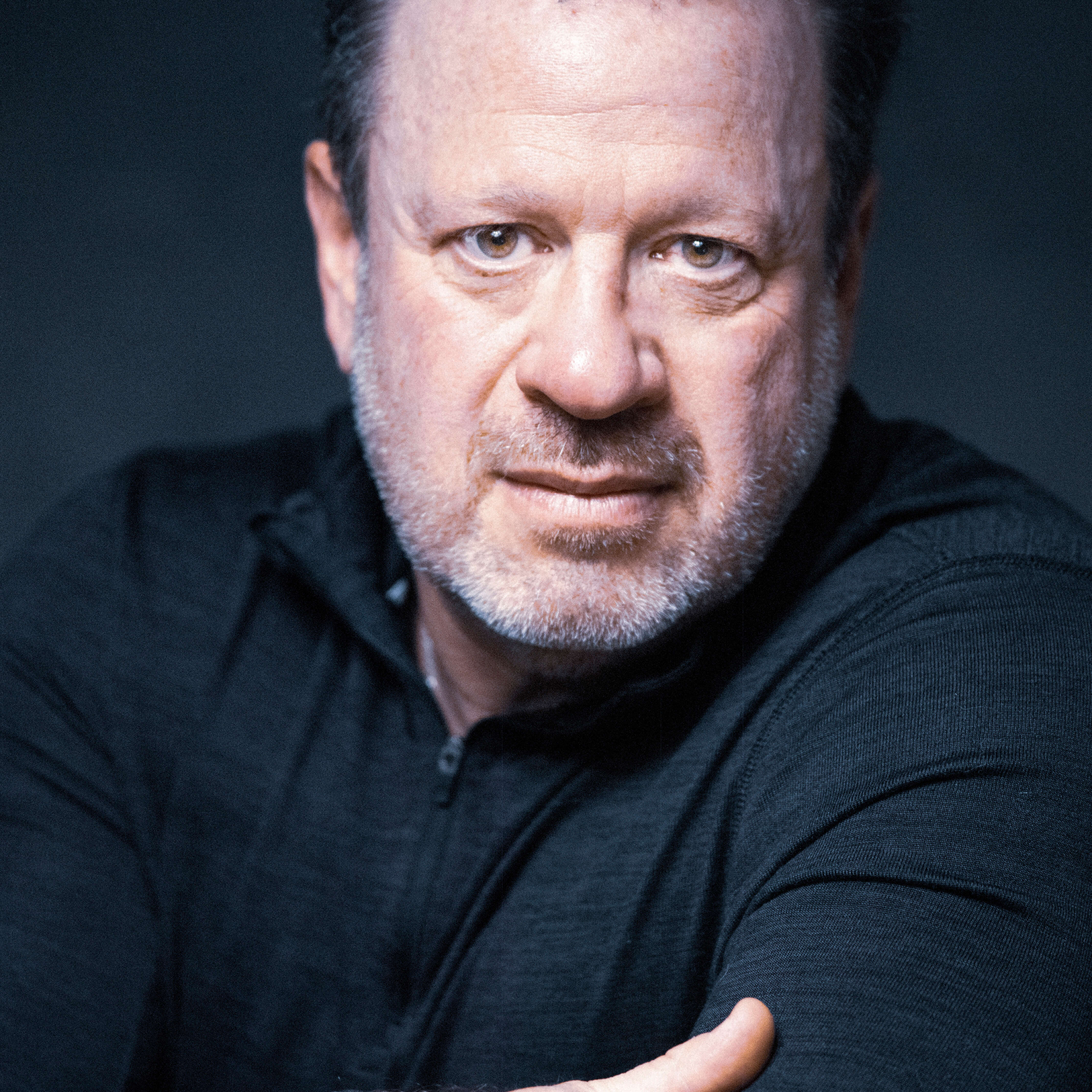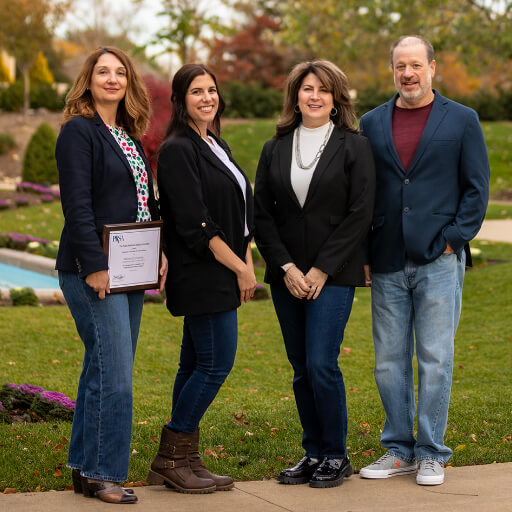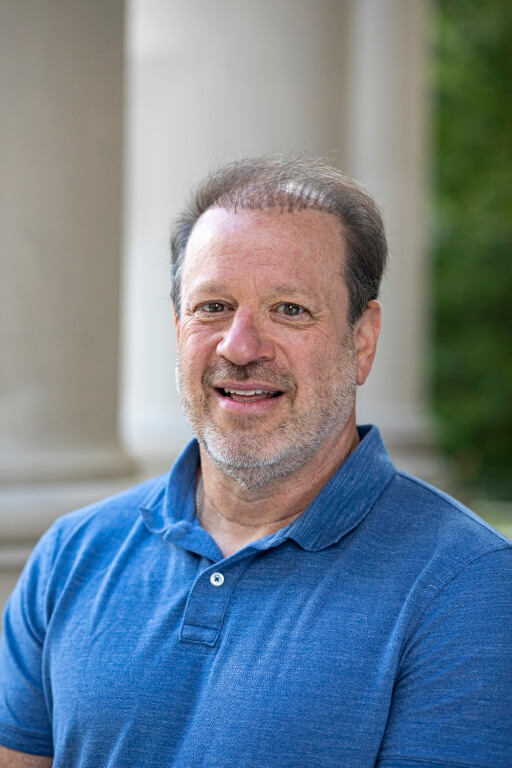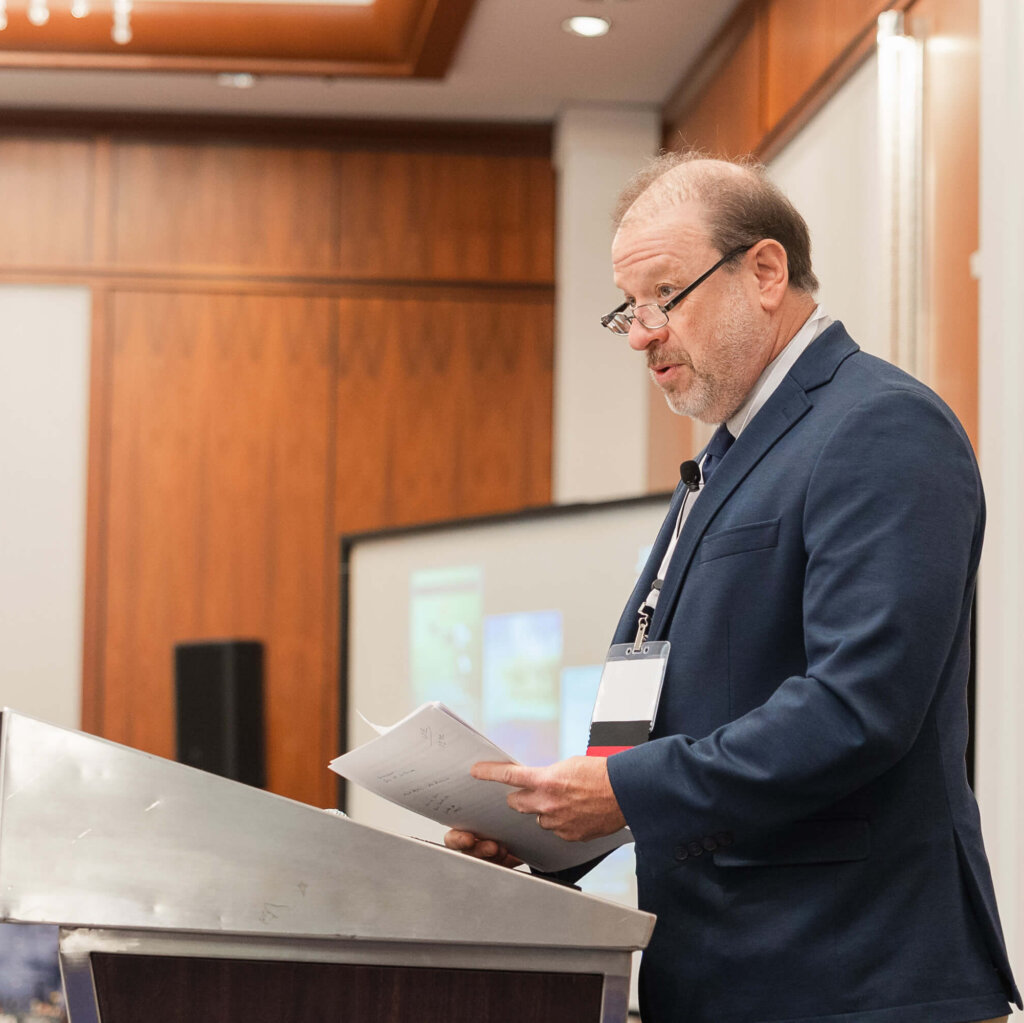
John Morano
- Professor
Department: Communication
Office: Plangere Center Lot 226
Phone: 732-571-4424
Email: morano@monmouth.edu
Education
Master of Arts in Mass Communication/Journalism, Penn State University
Master of Education Program/New York State English Teacher Certification, Adelphi University
Bachelor of Arts, majors in English and Screen Studies, Clark University
Research Interests
Film Criticism, Environmental Journalism, The Literature of Journalism, Journalism Ethics, and History of Journalism
Scholarly Works
Special Projects Producer/Writer for Forrest Galante of Discovery/Animal Planet: Wrote/Produced two series, When Worlds Collide and They Walk Among Us (under consideration/development with the network), as well as other projects for Forrest Galante.
Author: The Morano Eco-Adventure Book Series. In progress, the fifth novel of the environmental book series that uses endangered species as main characters and imperiled habitats as primary settings.
Active speaker at a variety of conferences and events; typically on environmental issues, writing, and journalistic topics.
For more, visit JohnMorano.com
External Affiliations & Community Engagement:
Thirty-three years as Faculty Adviser to the student newspaper.
Twenty years as Faculty Adviser to the Men’s Basketball Team.
Ten years as Faculty Adviser to the Student Government Association.
Awards and Honors
Book series has received numerous accolades and endorsements, including endorsements from The Nature Conservancy, World Wildlife Fund, Oceana, The Ocean Conservancy, The Rachel Carson Center, ASPCA and other world class environmental organizations.
Former Faculty Adviser to the student newspaper, The Outlook, that has been named “University Newspaper of the Year” five times in the American Scholastic Press Association national competition, as well as “University Newspaper of the Year” from the Society of Professional Journalists, and “Top 10 in the Nation” from American Collegiate Press (their highest award).
“The Distinguished Faculty Award” (Monmouth University’s highest teaching honor), “The Celebration of Teaching Award” (First ever recipient from Monmouth University’s School of Education), as well as five consecutive “Student Choice Awards.”
Additional Information
Listen to Professor Morano’s episode of the Department of Communication’s Professor Profiles Podcast:
Transcript
Matt:
As we continue with our faculty profiles here in the department of communication. I’m Matt Harmon had been sharing this workload with my colleague, Nick Messina. I’m a specialist professor here in the department, and I am happy to welcome in for this latest episode. Someone who has been on this campus longer than me and I don’t come across many of those people, but he is now a friend and colleague, but at one time he was, and still is on some level. The reason that I blame myself for getting into this field. Oh, so many years ago he is professor John Morano. Who’s good enough to give us some time here. How are you?
John:
I’m good. I’m good. Thanks for making time.
Matt:
You know, it is so interesting as, as you and I have known each other for so long, but as I started to dig into a little bit, the idea of sitting down and interviewing with you, I almost didn’t know where to start or what direction to go in because correct me if I’m missing anything faculty member here at Monmouth, since 88 author of now one, two, three, four books, as part of your adventure echo series, you have a textbook in there. You are also a, as I read on your website, I think, or somewhere along the way, an amateur paleontologist,
John:
Very amateur.
Matt:
How do we get rid of the word amateur? That, that word amateur just didn’t seem like it made any sense when someone was talking about you.
John:
Yeah, no degrees, you know, just a deep love for it.
Matt:
So let’s go back to probably I’d have to think with, with the idea that this is now the 25th anniversary or close within range of the 25th anniversary of your first book, which was a wing and a prayer. Does it seem like it was 25 years ago?
John:
No, No. The whole thing, this is my 32nd year at Monmouth and it seems more like my third or second year it’s and you know, as well as anybody, you, you just start, you get on this ride and it just takes off and you look back and you can’t believe how much has happened over the course of three decades. But it just doesn’t feel that way. It feels like it happened very quickly.
Matt:
When you think about the idea that wing and a prayer started, which has now led itself into three books, that aren’t necessarily sequels, but they connect in a way because they’re all about the idea of the environment and some of the animals that live within the environment. Where did you even come up with this concept idea?
John:
So I was, I was writing about movies and music as a critic. I worked in New York and Los Angeles, and it’s wonderful to be that guy who goes to a movie and then tells everybody what they just saw, what it all means. And that was a dream for me. And then while I was doing it, I started to think, you know, and this is just me, that other people don’t need to feel this way, but this is how I felt. At the end of the day, John, you’re writing about a movie, you know, you’re writing about a movie, a play, whatever. There are more important things in the world. And when are you going to write about that’s more important? And it seemed to me that extinction was pretty important. Maybe the most important thing we could encounter. It was happening every day. And I didn’t come up with extinction right away. I had seen a news story about the last living male hamster of a certain species. This reporter was talking about it saying that, Oh, when this hamster dies and he’s going to the planet, we’ll never see this animal again. And then that’s when I thought, you know, if you’re going to write a book, that’s what you should write about.
Matt:
Did you always have, I’ll say this connection to the environment or was it something that maybe organically kind of grew and came together?
John:
Yeah, so I grew up in East Rockaway New York, which isn’t the most
Matt:
Not the most environmentally friendly,
John:
Exactly.
Matt:
Okay, okay.
John:
But we lived on a canal. My dad built our house on a canal and I had a boat as a kid, and I spent a lot of time on the beach in the bays. And I didn’t realize it while it was happening, but that youth on the water just kind of wired me a certain way. And as I got older environmental issues started to mean an awful lot to me.
Matt:
As you think to book one book to book three now, book for the latest book flock flocks of one. Again, the idea that the characters don’t continue to reoccur though, I do, I know they do in some of the books. But you have created this massive family of animals that I would have to think that, that somewhere in there, is there ever a struggle for you to come up with these ideas in these characters?
John:
You know, honestly I have too many ideas and too many characters because as long as we keep messing up our natural world and we seem to do more of that every day, there’s more stories to tell. And as a journalist, I want to tell those stories because they’re important. And as a novelist, I sprinkle in a little fantasy, a little fiction and I wind up with what’s turning out to be some pretty cool stories.
Matt:
How does John Morano define himself? If somebody says, Hey, what do you do? You say, well, I do X, Y, and Z, or w what, what usually comes first? Is it professor first and then author? Or is it father first? And then everything else on top of it,
John:
It’s tough. Like, you know, we wear a lot of hats, but I can tell you that when I was a student and I was starting to leave the university, one of my goals was to actually, when somebody asked me a question, Hey, what do you do? I wanted my answer to be, I’m a writer. And like, it be true that actually made money and my living writing. And I’m pretty much able to do that now to say that. And for me, that’s the fulfillment of a somewhat lifelong dream.
Matt:
We’ll get back to the books a little bit, but I want to change gears and talk about obviously where we sit right now, which is on the campus of Monmouth university. When you started, when I started, it was mom with college. Now it’s mom at the university. Some of the classes that you taught and still teach today, intro to journalism, writing the review, those types of classes have obviously changed. And, and what you just said, kind of triggered this for me. You said back in the day, I wanted to call myself a writer while a lot of people today probably still have that same idea, but the way that they do it is so different today because of the internet, because of blogging because of social media. So that would lead into the way you teach your classes today, even though some of the titles might be the same, have to be completely different.
John:
Yeah. So for students today, which I wasn’t faced with, when I was a student, there’s an expanded skillset. You bring a pen with you, but you also bring your phone. And you have to be able to gather sound and you have to be able to gather images in ways that we weren’t asked to do a long time ago, those are new things. But some things that haven’t changed, we still have to know how to write a lead. We still have to know how to identify who to ask what questions to we have to quote people accurately. There’s a we have to understand a certain legal issues, liable things along those lines. What’s truth, what’s fake news, that kind of thing. So there’s this foundational skill set that remains somewhat intact and then added on to that, or some new things that people are being,
Matt:
It has to do. You know, I use some of the same ideas and concepts and some of the classes that I teach sports-related I always say it wasn’t that scandal didn’t exist. I’ll say back in the day with the air quotes around it, it’s just that now is almost, is what sells people to click. Sure. Rather than, you know, I always use the old time example. And and it’s more my father’s generation than anything else. You talk about Mickey mantle who had a crazy reputation, but never really was thrown under the bus by the press Corps that covered the Yankees on a day to day basis today. It’s all about who’s going to get the story out first, rather than necessarily be right. Who’s going to get the most clicks. The most likes. It’s a, it’s a world that as you and I continue to teach it and students continue to take our classes always changes.
John:
And back in the day, you could quantify who was interested in your newspaper based on how many issues you sold that day. So it gave you your headline kind of decided that front page kind of decided how many copies we would sell, what was working, what wasn’t working, what were readers interested in fast forward to today? We quantify interest in a very different way. Today we know when you are reading digitally off your phone or off a website or something in between, based on what you click on, not just whether you picked up the paper, but what stories you’re reading, what ads you’re clicking on, we can quantify all that. And so if a story like back in the day, we didn’t really know what story you pick the paper up for today. We know we know what you reading, and if stories on fuzzy puppies, if stories on fights and nightclubs, things like that are what people are clicking on, then there’s a much greater chance that that’s what you’re going to see in the future. And hopefully it’s not at the expense of more important stories.
Matt:
Simple question here for you with maybe a complicated answer that I’m sure we could talk about almost all day. Do you like the direction that the business is headed?
John:
That’s a tough call. There are things I like about it. Just as we can almost instantaneously get news out there just as we can empower more people to share more stories. We can also get inaccurate information out there instantaneously, and some of the people we’re empowering these air quotes, citizen, journalists don’t have any training. And so it’s way more citizen and much less journalists. So we’re getting a lot of information. We’re getting it very quickly. I’m not sure that it’s better information.
Matt:
How about think of your time from 1988 till here in 2019, all the classes that you’ve taught, is there a class that you feel like this is, this is my baby, this is my class. This is the one that every year, every semester I can’t wait to teach,
John:
You know, honestly I just kind of feel like that about being in the classroom in general. I don’t really walk in, you know, when I was a kid, I was a basketball player and there were guys who like to shoot the ball a lot. And there were guys who like to do other things. One of the things my coaches always said about me was that I liked to play the whole game. I liked to play offense. Of course I wanted the ball in my hands, but I wanted to play D I would rebound. I would, whatever you wanted me to do, I would do. I like the game. And I kind of feel the same way about teaching, being a professor at Monmouth. I like the whole game, all the classes and all the other things that come with it,
Matt:
You know, I was reminded as you and I were, we’re talking back and forth about setting up a time for this. And I threw some stuff out. And one of the questions I said was, will you go until the end of your class and your response back to me, brought me back to sitting in your class, which was always, why would I let anybody out early? That’s, that’s just you though, right? I mean, you, you have that information that you want to pass along to the students.
John:
Yeah. I, you know, I tell them in the beginning, you’re going to get your money’s worth whether you want to or not. There’s, it’s too important. There’s too much on the line. This is your education. This is your future. I have never met someone who was 10 years out of college and said to me, I’m so glad we didn’t do anything. I’m so glad I didn’t read that book. I’m so glad that I slacked and I got out early. Almost every single person who’s 10 or 15 years out of school has said to me, I wish I worked a little harder. I wish I did a little more. And so I’m going to work. Yeah. You know, that’s what my coaches always did to me. And if it makes you a better player, I think the same thing can happen in a classroom.
Matt:
Professor, John Marano, joining us here. It is our series that we’ve got going on here within the department of communication faculty profiles. You learn a little bit about them and hopefully they can connect with you as well. Let’s circle back a little bit. Tell me about the future of the series with now four books in, I think you’re working on a fifth one already, which probably means that you’ve got six, seven and eight somewhere in the back of your head.
John:
Yeah. So yeah, I’m working on the the fifth book. Now I’m going to go to wolves. All my creatures, my main characters are endangered species and my settings are imperiled habitats. And I’m trying to show people something they haven’t seen tell them something they haven’t heard before. Weighing just came out in an audio book, which we’re pretty excited about. And my publisher has all four books slated for production. The second book is in the studio right now while we’re talking. So it’s, it’s, it’s, it’s encouraging. It’s exciting.
Matt:
I’ve been saving maybe the best for last. And you started to touch on it a little bit in almost every interview. When I have the opportunity, like to finish with a couple of little fun things. The, the rumor around campus from when I was a student in the nineties to today that if the game’s on the line and you need a guy to stick a three-pointer, are you still the guy? If you’re asking me, I’m asking you, of course, yes. I’m asking you, I’m the guy, because listen, I re I mean, I’m going back 25 years ago when you had kind of just started teaching. And I remember people saying like, don’t play against him. He’s nasty on the court. Have you lost that edge at all? Or is it still, is it still something that you really do love to do? Maybe not as much as you did back in the day, but still, still love?
John:
Well, so a knee that has no cartilage left in, it has hobbled me a bit, but in my mind, I’m that guy, I want the ball.
Matt:
The only problem You and I have ever had is the continued struggle that you like the Knicks.
John:
In all of sports.
Matt:
That is a problem.
John:
It’s a problem liking the Knicks.
Matt:
It’s a problem liking the next, but that is your undoing. Appreciate you coming on and giving us some time. This was great. I w I’m sure at some point we’ll circle back and dig into a little bit more. I love the books. I think the whole idea of them are great. And to be able to talk to you in this setting and remembering, sitting in your class in the mid nineties and still see you love and do what you do today. This was awesome for me. I appreciate it.
John:
Me too.
Matt:
We thank professor Murrano for stopping by and giving us some information for my colleague, Nick Messina. This is Matt Harmon for more information on professor Morano, visit his website at johnmarano.com for information on his novels and so much More.



